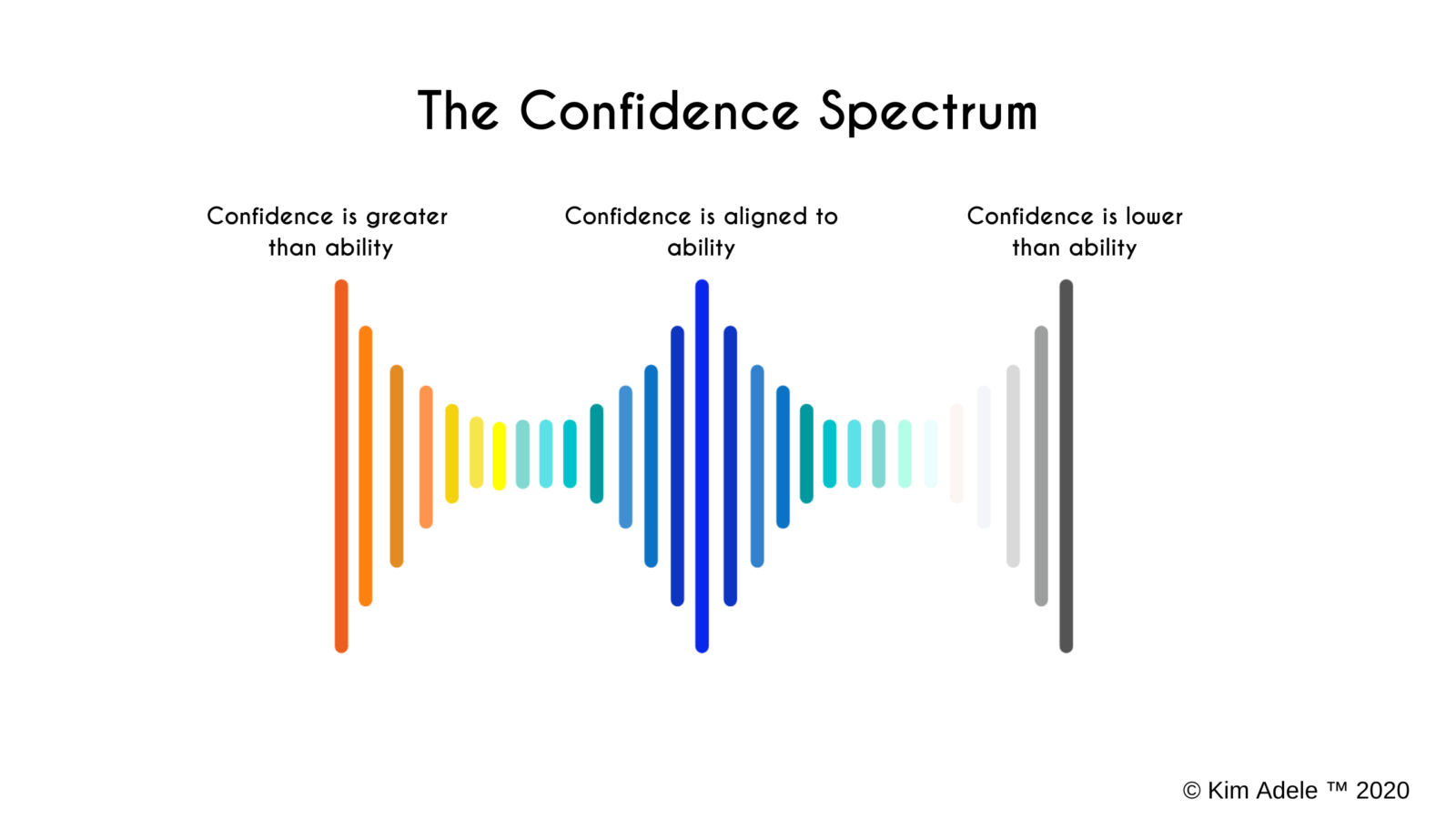The Confidence Spectrum
The Confidence Spectrum is a model I created to help me understand the varying forms of confidence. We will all know of people who have more confidence than their ability, and also those who doubt themselves despite having outstanding success.

Confidence is not the absence of fear, but rather the belief that you can overcome it. It’s easy to see confidence as a black and white spectrum where some people are confident while others lack confidence. In reality, there is a much more complex spectrum with many different degrees of confidence ranging from complete certainty to crippling doubt. The key to understanding the complexities of this spectrum lies in recognizing how each person struggles with their own unique fears and challenges which determine where they fall on this gradient from overconfident to doubtful.
On one side of the spectrum, we see people whose belief in their ability is significantly greater than their actual ability. This is perhaps an element of Dunning Kruger. On the other side we see people who doubt their ability and lack belief this is often known as Imposter Syndrome. In the middle is the real goal that perfect alignment of belief and ability resulting in genuine confidence.
What is Dunning Kruger?
Dunning Kruger is on the far left of the Confidence Spectrum where the person’s belief in themselves is far greater than their abilities.
“Have you ever met someone, they are so confident in their knowledge of the topic that you feel like they must be an expert? Have you ever met someone who thinks everything is about them? Have you ever met someone who cannot see how uninformed they are on a particular subject matter?” “The Dunning Kruger Effect helps explain these behaviours.” “In 1999 two psychologists, David Dunning and Justin Kruger published a paper exploring why some people lack insight into their own incompetence. The paper was called Unskilled and Unaware of It: How Difficulties in Recognizing One’s Own Incompetence Lead to Inflated Self-Assessments.” You can find out more here
What is Imposter Syndrome?
Imposter Syndrome is on the far right of the Confidence Spectrum where the person’s belief is significantly lower than their abilities. Imposter Syndrome is a feeling that you are not good enough, smart enough, or talented enough. It was coined by psychologists Pauline Rose Clance and Suzanne Imes in 1978 and it’s something many people struggle with today. It can be paralyzing for those who have it and lead to thoughts of quitting your job or giving up on your dream. You can find more information here
What is Genuine Confidence?
Genuine Confidence if the holy grail, it is in the centre of the Confidence Spectrum and is that complete alignment between what you believe you can do and what you are able to do. It comes from within, where you trust yourself wholeheartedly. People who are confident know their worth and don’t feel the need to prove themselves. They’re brave enough to be vulnerable without fear of judgment, and they can ask for help when they need it. That’s what confidence is all about: feeling good in your own skin and being comfortable with yourself
Confidence starts from within, but it also has a lot to do with how we view ourselves in relation to others around us. It’s important that we nurture our self-esteem by surrounding ourselves with people who believe in us and support us no matter what life throws at us – or else we risk losing sight of our true potential.”
Where are you on the spectrum?
Understanding where you are on the confidence spectrum is the first step. It is worth noting that it can be situational for example if I am giving a speech I tend to be over to the right and my inner imposter kicks in, but if I am making my daughter beans on Toast I am in the middle, I trust I can do it.
I hope you have found this useful, if so please check out our blog here or subscribe to our newsletter here or check out my press room

